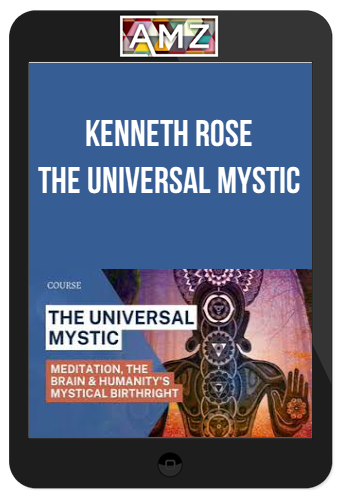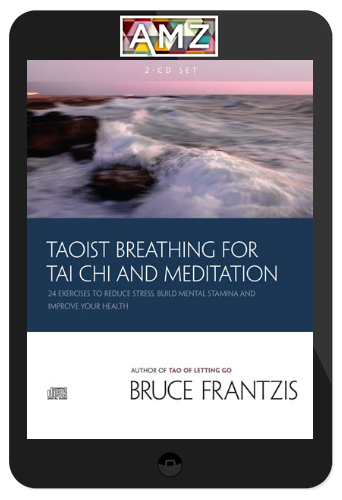Kenneth Rose – The Universal Mystic: Meditation, The Brain And Humanity’s Mystical Birthright
$149.00 $33.00
»Instant Delivery
Kenneth Rose – The Universal Mystic: Meditation, The Brain And Humanity’s Mystical Birthright
Description Of The Universal Mystic: Meditation, The Brain And Humanity’s Mystical Birthright
Revered philosopher and psychologist William James celebrated the universality of mysticism when he famously declared that mysticism has “neither birthday nor native land.” Mysticism is the perpetual taproot of all vital spirituality, and it is as much our spiritual birthright to be mystical as it is to express artistic, ethical, scientific, and philosophical impulses.
Yet mysticism’s unique power to open the inner door to transcendent experience and a healing sense of oneness with the whole of life is often misunderstood, and it is sometimes dismissed as nothing more than a morbid fascination with weird mental states and paranormal powers. And for those who are committed to a materialist view of life, the word mysticism is a label meant to warn us away from anything that violates the standards of everyday, conventional rationality.
But, as we will see in this course, mysticism is also our genetic birthright as current research on mystical experience in neuroscience, genetics, and evolutionary cognitive science shows. The potential for mystical experience has been engraved like a rail upon our brains, which are genetically coded for transcendence. This startling insight is emerging more from science labs than from academic centers of religious study, and this course will trace out the biological basis for deep spiritual experiences. Rather than undercutting mysticism by reducing spiritual experiences to brain states, this new research suggests that our brains, like our minds, are oriented toward harmony with a deathless and immaterial ground of life.
Just as important as these philosophical, religious, and scientific approaches to mysticism is the practical study of mysticism, which we enact through the practice of meditation. Meditation is the inner door to liberative insight. Although meditation is a inbuilt human capacity, which we can all practice, the cultivation of meditation has generally happened most intensely in disciplined religious settings like monasteries and ashrams.
As we will see in this course, the meditative yoga of Hinduism, the contemplative practices of mystical Christianity, Buddhist meditative practices, and similar practices in other religious and philosophical traditions are mental programs that activate a mental and biological process that leads from everyday awareness to nondual union with the whole of life.
What You’ll Learn In The Universal Mystic: Meditation, The Brain And Humanity’s Mystical Birthright
In this course, Dr. Rose will trace this meditative process as described in Hinduism, Buddhism, and Christianity and link it to the brain’s meditative pathway as described in current contemplative neuroscience and neurotheology. He will also explain how to open the inner door of meditative concentration by outlining and practicing with you some classic and new meditation methods—and will share what he thinks of as the most basic meditation practice.
Module 1: The Universal Mystic: Why You Have the Right to Be a Mystic
Mysticism is a controversial and fascinating topic. The words mystic and mysticism often evoke images of unusual mental states or paranormal powers. The word mysticism is often used negatively for anything that violates the standards of everyday, conventional rationality. More than altered states of consciousness or unusual powers, mysticism is actually the key mental and spiritual tool that opens the door to transcendent experience and a healing sense of oneness with the whole of life.
Unusual as it may be, mysticism is actually a capacity as essential to being human as language. As a universal human experience, mysticism is our spiritual birthright, and it is not dependent on the world’s many religious traditions and movements. In this session, I will suggest why, as revered philosopher and psychologist William James once declared, the classic texts of mysticism have “neither birthday nor native land.”
Module 2: Science, Med School Goes to the Ashram: The Biology of Mysticism
Alongside its status as our spiritual birthright, mysticism is our genetic birthright as well. As we will see in this lecture, current research on mystical experience in neuroscience, genetics, and evolutionary cognitive science shows that mystical experience is grounded in our biology. As I will show in this session, the potential for mystical experience has been engraved like a rail upon our brains, which are genetically coded for transcendence.
Module 3: Concentration: Opening the Mystical Door
The most basic element of our inbuilt code for transcendence is our capacity for meditation, or more specifically, the practice of concentration, which is the inner door to liberative insight. As I will show in this session, the meditative yoga of Hinduism, the contemplative practices of mystical Christianity, Buddhist meditative practices, and similar practices in other religious and philosophical traditions are concentration and insight exercises that set into action a mental and biological process that lead from everyday awareness to nondual union with the whole of life.
Because the practice of mysticism follows a psychologically definable path with virtually identical steps in each of these traditions, mysticism is also our psychological birthright.
Module 4: The shared Mystical Path: Meditative Training in Hinduism, Buddhism, and Mystical Christianity
In this module, we will trace the meditative process described in Hinduism, Buddhism, and mystical Christianity and link it to the brain’s meditative pathway as described in the new fields of contemplative or affective neuroscience and neurotheology. We will also explain how to open the inner door of meditative concentration by outlining and practicing with you some classic and new meditation methods—and Kenneth will share what he thinks of as the most basic meditation practice.
Students who take this course will:
- learn the universal characteristics of mysticism
- trace out the links between mysticism, meditation, and spirituality
- discover the many benefits of meditation
- see how mysticism and meditation moved from the ashram and the monastery to the laboratory and the hospital
- trace the biological basis of meditation and mysticism
- discover the psychological and spiritual basis of meditation
- learn about scientific studies linking meditation and happiness
- experience different kinds of meditation including the most basic meditation practice
More courses from the same author: Kenneth Rose
DELIVERY POLICY:
When will I receive my course?
You will receive a link to download your course immediately or within 1 to 21 days. It depends on the product you buy, so please read the short description of the product carefully before making a purchase.
How is my course delivered?
We share courses through Google Drive, so once your order is complete, you’ll receive an invitation to view the course in your email.
To avoid any delay in delivery, please provide an Gmail and enter your email address correctly in the Checkout Page.
In case you submit a wrong email address, please contact us to resend the course to the correct email.
How do I check status of my order?
Please log in to Course AMZ account then go to Order Page. You will find all your orders includes number, date, status and total price.
If the status is Processing: Your course is being uploaded. Please be patient and wait for us to complete your order. If your order has multiple courses and one of them has not been updated with the download link, the status of the order is also Processing.
If the status is Completed: Your course is ready for immediate download. Click “VIEW” to view details and download the course.
Where can I find my course?
Once your order is complete, a link to download the course will automatically be sent to your email.
You can also get the download link by logging into your Course AMZ account then going to Downloads Page.





